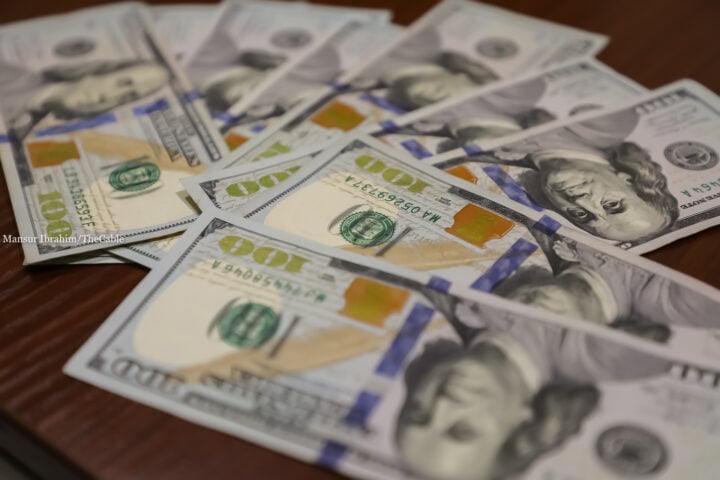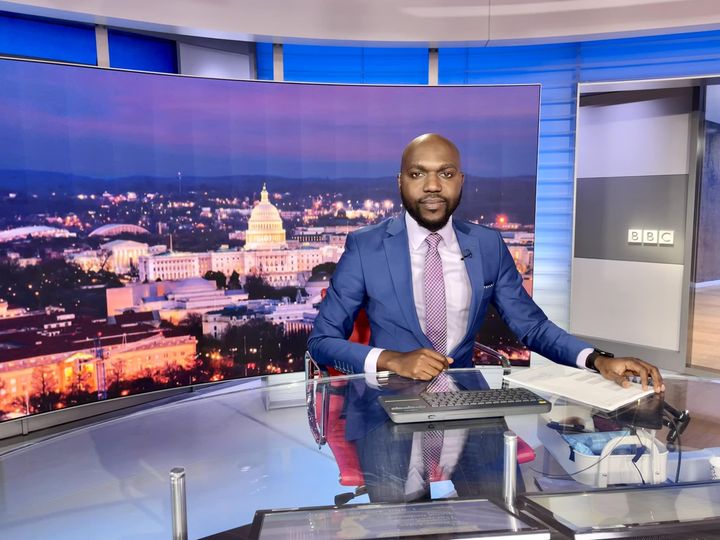Nigeria’s foreign exchange (FX) reserve dropped by $1.02 billion within 18 days.
According to data from the Central Bank of Nigeria (CBN), the FX reserve stood at $33.43 billion on April 4 — down from $34.45 billion on March 18.
The record showed that the country’s foreign reserves declined from $34.45 billion on March 18, to $34.39 billion on March 19, $34.32 billion on March 20, and $34.26 billion on March 21.
Further analysis revealed that on March 26, the reserves fell further to $33.95 billion, with the downward trajectory continuing to $33.89 billion on March 27, $33.83 billion on March 28, and $33.57 billion on April 2.
ADVERTISEMENT
Advertisement
Between April 3 ($33.51 billion) and April 4 ($33.43 billion), the nation’s reserve dropped by $8 million.
Within 18 days, the reserves declined by $1.02 billion amid efforts by the CBN to increase liquidity in the FX market and stabilise the naira.
Since the beginning of the year, the apex bank under the leadership of Olayemi Cardoso, has introduced several policies to improve the FX market and strengthen the naira.
Advertisement
Part of the interventions includes the occasional sale of dollars to the bureau de change (BDC) operators to ensure sufficient liquidity in the market.
On February 27, the apex bank resumed the sale of FX to BDCs.
In the first tranche, each “eligible” BDC was allocated $20,000 at the rate of “N1,301/$, while the second tranche of $10,000 was sold to the BDCs at the rate of N1,251/$.
Following the interventions, the apex bank said the economy recorded over $1.5 billion inflow in March.
Advertisement
Speaking to TheCable on Monday, Charles Abuede, research lead at Cowry Asset Management Limited, said the reason for the depletion is due to the persistent weekly and monthly interventions in the foreign exchange market to stabilise the value of the local currency amidst increasing forex volatility.
“Despite efforts to implement reforms and attract foreign exchange into the economy, inflows have remained limited due to a lack of transparency and the ongoing depreciation of the naira against the US dollar,” Abuede said.
“This combination of factors has posed challenges for maintaining adequate levels of foreign reserves, which are crucial for supporting the stability of the economy and facilitating international trade.
“Since the start of the year, the CBN has issued various directives or circulars aimed at ensuring steady inflow into Nigeria’s economy.
Advertisement
“From the existing reality, these reforms have yielded some positive results as there’s been a reported narrowing of the gap between the official and parallel market rates.
“There have been some positive signs so far in 2024, though. February saw a significant increase in foreign exchange inflows, including a rise in overseas remittances and foreign investor purchases of Nigerian assets.
Advertisement
“We have seen a positive accretion in the dollar reserves position by 2.63 percent or almost $900 million to $33.89 billion at the close of March, 2024 from $32.91 billion at the close of December 2023 and reflects an encouraging trend of improved foreign exchange inflow into Nigeria’s economy.”
However, Abuede said Nigeria’s reserves experienced a nearly 2 percent dip since June 2023, following the FX unification exercise by the central bank.
Advertisement
Add a comment






